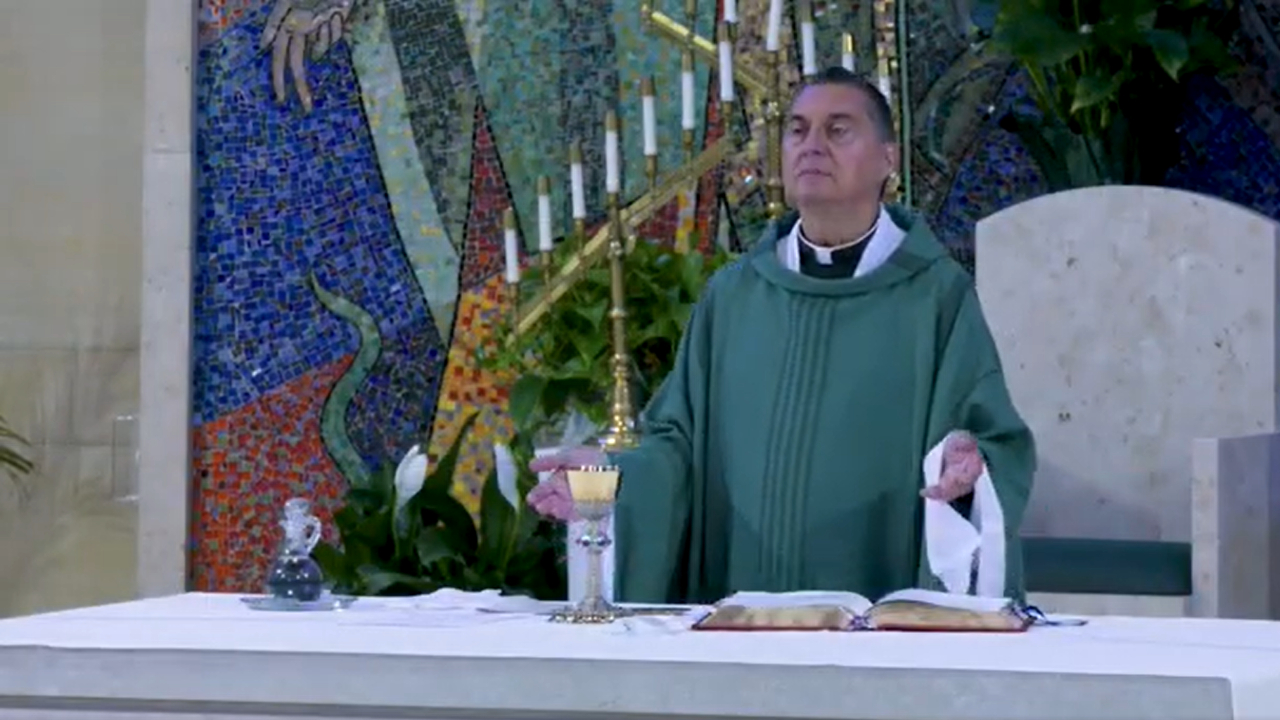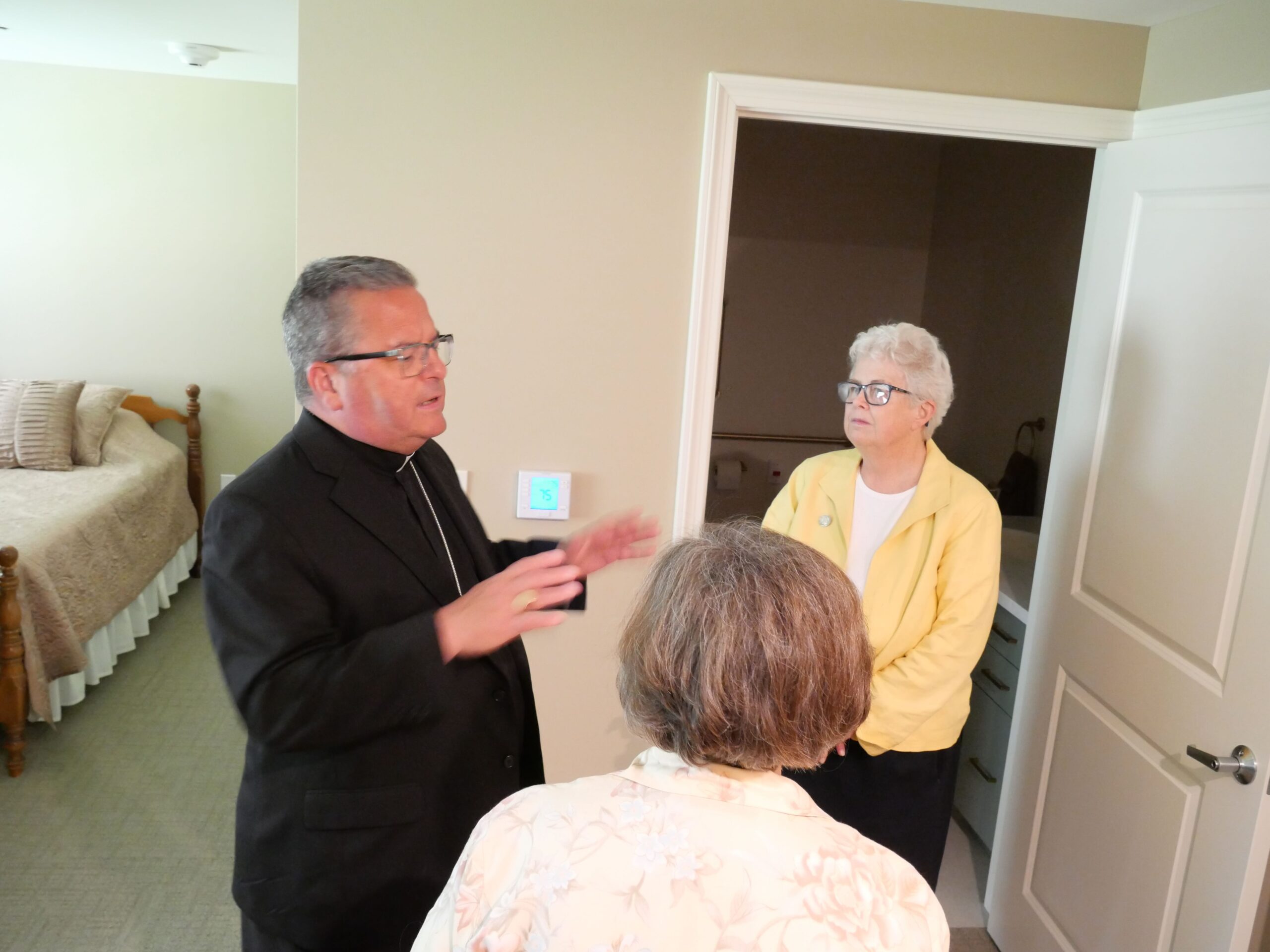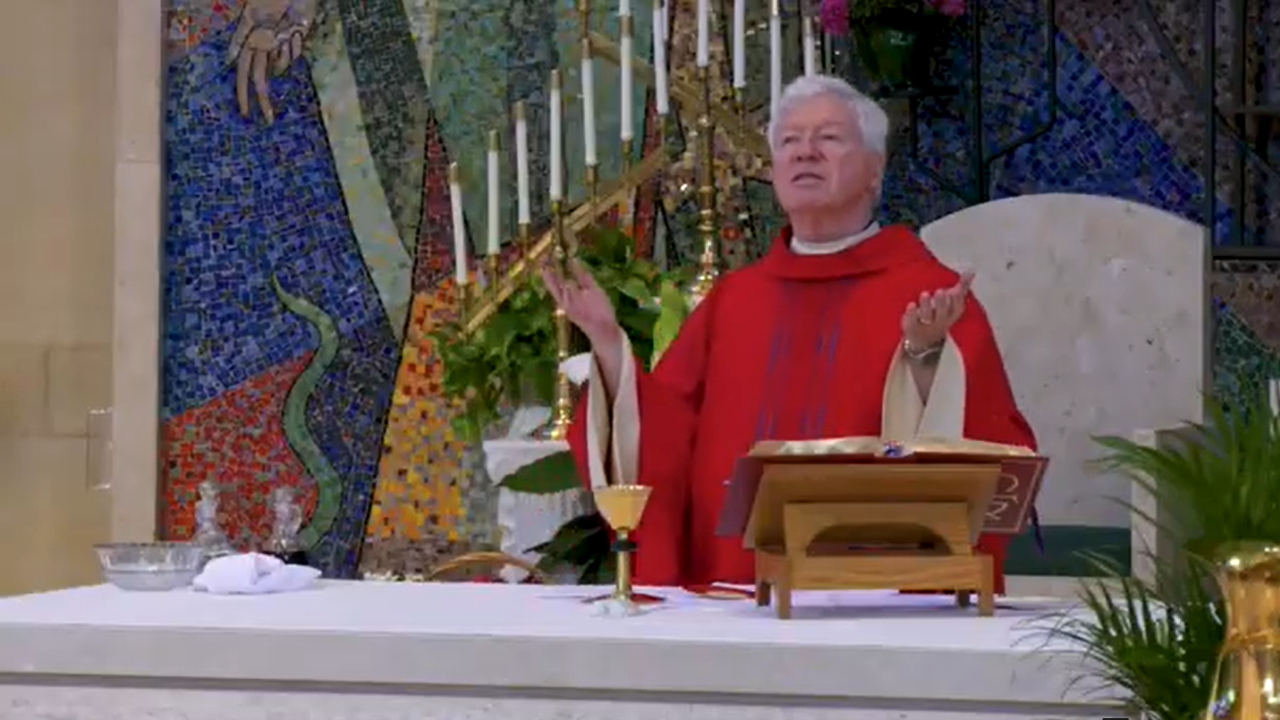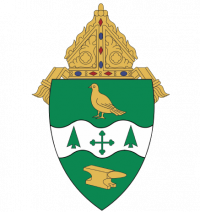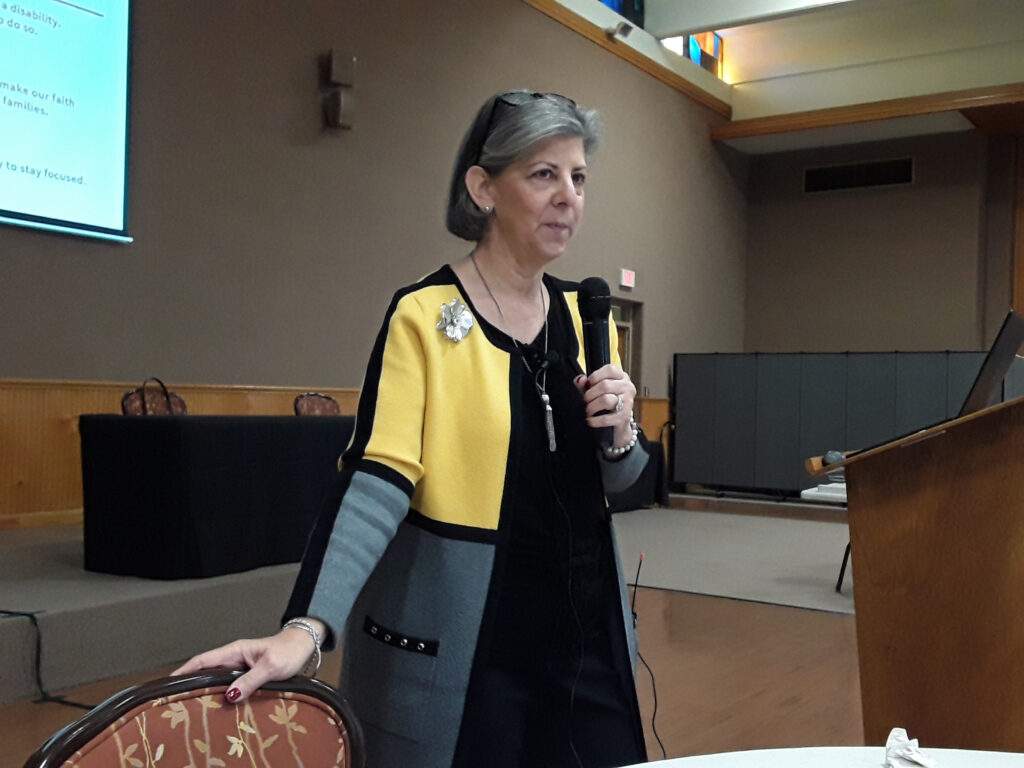
CHAMPION – Charleen Katra came home to Trumbull County to drive home the message that the Church needs to be better equipped to serve all of God’s people, no matter their abilities.
Katra, a graduate of Warren John F. Kennedy High School and executive director of the National Catholic Partnership on Disability in Washington, D.C., gave a presentation Nov. 17 at St. William Catholic Church titled “The Art of Accompaniment: Beyond Inclusion to Belonging.”
The presentation was sponsored by the diocesan Office of Faith Formation and Lay Ecclesial Ministry.
“It is nice to give back to my home diocese,” Katra said, noting she was baptized at St. Mary Parish in downtown Warren (now St. Mary and St. Joseph) and earned her undergraduate degree at Kent State University.
She explained that the Americans with Disabilities Act was passed in 1990. It is a civil rights law that prohibits discrimination based on disability and requires covered employers to provide reasonable accommodations to employees with disabilities, and imposes accessibility requirements on public accommodations.
However, nearly a decade before that, in 1982, the U.S. Conference of Catholic Bishops (USCCB) established the National Catholic Office for Persons with Disabilities, now the National Catholic Partnership on Disability, to promote the inclusion of persons with disabilities in the life of the Church and community.
“With this office, the U.S. bishops issued a challenge that the doors of the churches be opened and the hearts of the people be opened,” Katra said.
Part of the USCCB’s statement reads, “We must recognize and appreciate the contribution persons with disabilities can make to the Church’s spiritual life, and encourage them to do the Lord’s work in the world, according to their God-given talents and capacity.”
“The focus today is on a person’s abilities and gifts, not just the disability,” she said. “We have to put the flesh on the document.”
Katra said if we, as a Church, are living out the values Jesus taught in the Gospels, then full inclusion should be the norm.
“We want to look at the gifts. God puts in front of us who we are meant to see. The Church needs them [persons with disabilities] more than they need the Church,” she said.
The speaker stressed the reality that everyone has strengths and weaknesses and quoted the old adage that “we are all one accident away from a wheelchair.”
She asked attendees to give examples of words used to describe persons with disabilities both historically and now, to demonstrate how the language has evolved. She said even the word “disabled” has a negative connotation and we should always use “person-first” language, which represents more respectful and accurate communication, and acknowledges that people are not their disability or their diagnosis.
She mentioned physical barriers that persons with disabilities encounter, such as stairs, or non-ADA compliant restrooms and building entrances, and also noted there are attitudinal barriers that are more harmful and harder to remove.
She told attendees there is an acronym, LAMB, which stands for language, accessibility, meaningful participation and belonging, that everyone should remember when dealing with persons with disabilities, whether physical, emotional or mental.
Katra also explained the Dicastery for Laity Family and Life’s campaign slogan, #IamChurch, which gives everyone “without exclusion or discrimination” the encouragement to exclaim “I am Church!” The slogan was inspired by Pope Francis, who stressed that having a disability does not limit someone from being a “fully-fledged member of the ecclesial community.”
She showed video testimonies from people around the world telling what it means to be a Christian with disabilities, as part of the #IamChurch campaign.
“It is OK to be curious about someone with a disability, but we should never be judgmental,” Katra said “The goal is to always be respectful. All behavior is communication, and how we perceive someone affects how we receive someone.”
She then shared recent statistics that show one in 44 children have a diagnosis on the autism spectrum and one in six children live with sensory processing challenges, which Katra described as a “traffic jam in the brain.” She said sensory-friendly Masses are growing in popularity to address these statistics.
“Whatever we can do to help people feel more included when they worship, we should do,” Katra said, noting that sensory-sensitive children need twice as much time to do half the work as their peers – a reminder for catechists to be patient.
She offered suggestions for churches to be more sensitive to those with sensory processing challenges, including creating a “calming room” as opposed to a “cry room” and creating a “Christ corner” at Mass with toys, fidget busters and other calming measures so the area has a positive connotation rather than a negative one.
Katra said there was a time when children with disabilities were turned away from receiving the sacraments of First Communion and Reconciliation once they were baptized.
In 1995, the USCCB strengthened its commitment to persons with disabilities with the passage of the “Guidelines for the Celebration of the Sacraments with Persons with Disabilities,” which contains 10 principles of justice and inclusion that can be found at www.usccb.org or ncpd.org. It was revised in 2017 to add celiac disease and those on the autism spectrum, Katra explained.
Katra said she and the NCPD are working on a proposal to ask the USCCB to write a new pastoral letter on disability inclusion, but the process will take several years. She said she could not give specifics about the changes being sought because discussion is in the early stages, but meetings already have taken place.







